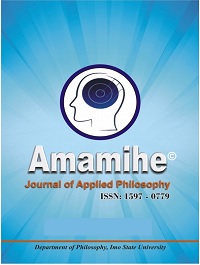FALSE TESTIMONIES AND RELIGIOUS MANIPULATIONS: A CRITICAL EXAMINATION OF DECEPTIVE PRACTICES IN CONTEMPORARY CHRISTIANITY AND THEIR IMPLICATIONS FOR MASS COMMUNICATION
Abstract
This paper critically examines the emergence and proliferation of false testimonies and religious manipulations within contemporary Christianity, particularly within Pentecostal and Charismatic traditions in Nigeria. While testimonies serve vital roles in affirming faith, motivating congregants, and promoting religious growth, they are increasingly exploited for economic gain, psychological control, and the consolidation of clerical authority. This study investigates how these deceptive practices are communicated and legitimized through mass media platforms. Anchored in Social Exchange Theory and Weber’s concept of Charismatic Authority, the paper explores the intersection of religious communication and media, highlighting the ethical dilemmas posed by falsified testimonies and manipulative religious broadcasts. This paper contributes to a broader understanding of the intersection between religion, media, and social influence, offering insights into the challenges of navigating truth and deception in an increasingly complex information environment. It employs qualitative content analysis of televised religious programs and digital testimonies, offering insight into how mass communication perpetuates spiritual deception. Recommendations are made for ethical religious broadcasting and increased media literacy among religious audiences.


